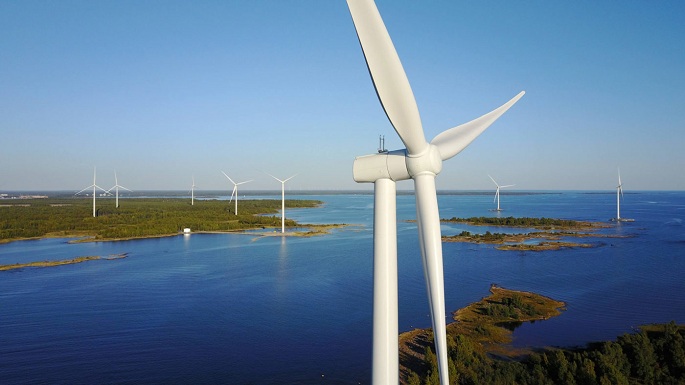IEA okays Finland’s nuke, energy policy but challenges remain
Published : 06 May 2023, 02:59
Finland’s nuclear and renewable power strengths provide a solid foundation for reaching its ambitious climate targets, according to the review of given by the International Energy Agency (IEA) published on Friday.
The IEA conducts country reviews of its member countries’ energy policies every five years and issues recommendations for new policy measures, said the Ministry of Economic Affairs and Employment.
The IEA takes a positive view of Finland’s energy policy and the achievements of recent years, which include significant construction of wind power, development of heat storage, deployment of new nuclear power, progress made in the final disposal of nuclear waste, and the enshrining in law of the 2035 climate neutrality target.
“I am pleased to read such a positive assessment of the energy policy Finland has implemented. Despite the challenging winter, we can be satisfied with the recognition given by the IEA to Finland in managing the energy crisis,” said Minister of Economic Affairs Mika Lintilä.
“Finland has excellent opportunities to be a leading country in clean energy in the future. Nearly 90 per cent of our electricity is already produced from fossil-free sources. The long-term promotion of nuclear energy and rapidly growing wind power are among Finland’s strengths that will help attract new industrial investments here,” Lintilä added.
According to the IEA, the uncertainties related to emissions and sinks in the land use, land use change and forestry sector (LULUCF) could be a challenge for Finland’s 2035 target.
Other challenges include the significant need for new energy legislation in a short period of time, long permit processes for the construction of renewable energy infrastructure, and the dependence of transport and heavy industry on fossil fuels.
The IEA recommended that the Finnish Government should develop a contingency plan to achieve the 2035 net zero emission target in case the LULUCF sector fails to deliver the needed carbon sinks.
To ensure that the temporary measures taken in response to energy price shocks do not weaken the signals for long-term clean energy decisions and investments.
To support increased energy storage to speed up the integration of renewable energy and improve the resilience and flexibility of the electricity grid and heating networks.
To accelerate the uptake of electric cars with a clear plan to expand and support their charging infrastructure and speed up the vehicle turnover rate by favouring electric vehicles. To encourage decreased use and ownership of private vehicles by improving the infrastructure for public transport, walking and cycling.
To draw up a roadmap for offshore wind power that includes a clear regulatory regime and sets ambitious targets and timetables for deployment. Incentives should be considered if necessary.
To Assess whether additional measures are needed to reduce oil consumption further so that Finland can achieve the target of reducing transport emissions by 50% in 2030 compared to 2005.
The IEA country review is a peer review, where Finland was evaluated by a group of 12 experts from the IEA Secretariat, the OECD Nuclear Energy Agency (NEA), the European Commission, the Netherlands, Ireland, Canada, Denmark, Turkey, Estonia and Australia.
Finland’s energy policy was also reviewed in 2018, 2013, 2008 and 2003. In those reviews, Finland received recognition for its energy policy choices and the diversity of the energy mix in use.


